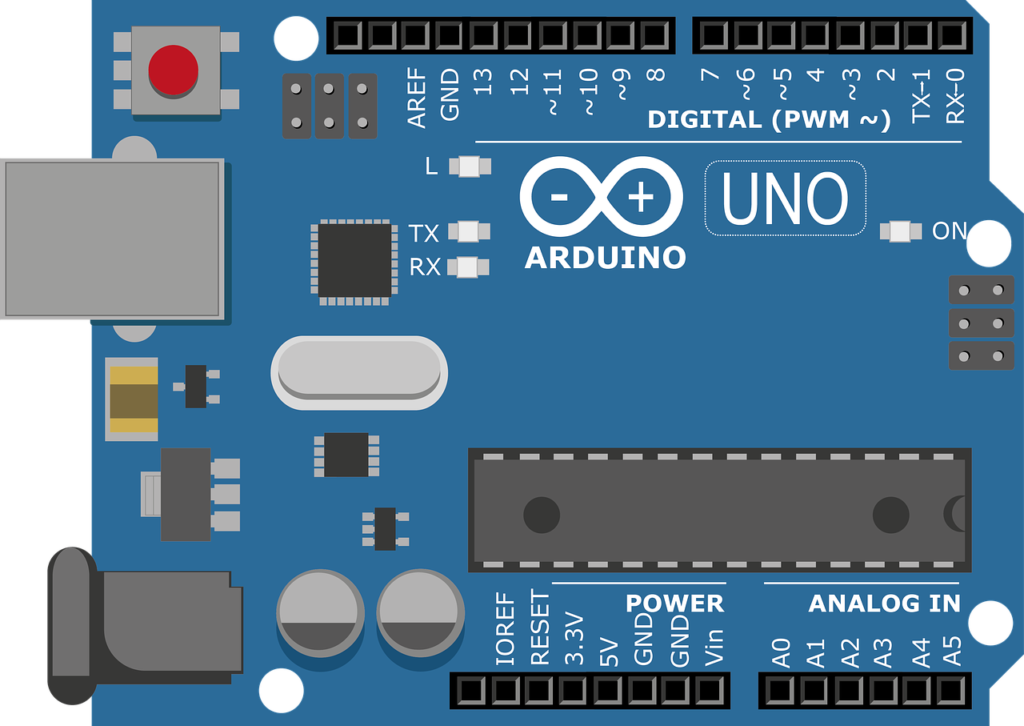So you’ve always wondered why building your own PC is considerably more affordable than buying one pre-built. Well, the answer lies in the freedom to choose your own components and the absence of the unnecessary branding and labor costs associated with pre-built machines. By selecting each individual part, you have the power to optimize your budget and tailor your computer to your specific needs, ultimately saving you quite a bit of cash. In this article, we’ll explore the reasons why building a PC can be a cost-effective option and how it allows you to get the most bang for your buck.

This image is property of pixabay.com.
Lower Cost of Components
Building your own PC can be significantly cheaper compared to buying a pre-built computer for various reasons. One of the main factors contributing to the lower cost of components is the competition among manufacturers. With numerous companies competing in the market, they are compelled to offer competitive prices to attract customers. This competition drives down the prices of components, benefiting consumers like you.
In addition to competition, the ability to purchase components in bulk provides further cost advantages. When you buy individual parts for your PC, you have the opportunity to take advantage of bulk purchasing, which allows for discounted prices. This bulk purchasing advantage can help you save a significant amount of money, especially when compared to the prices of pre-built computers.
Furthermore, when building your own PC, you have a wide variety of component options to choose from. Unlike pre-built computers that come with predetermined specifications, you have the freedom to select components that best suit your budget and requirements. This variety of options allows you to make strategic choices and potentially save money by opting for more cost-effective components without compromising on performance.
No Retail Markup
Another reason why building a PC is cheaper is the elimination of middlemen. When you purchase a pre-built computer, the price you pay includes the cost of distribution, retail markup, and additional fees associated with intermediaries. By building your own PC, you can bypass these additional costs and directly purchase components from manufacturers or authorized distributors.
Cutting out distribution costs allows you to obtain components at a lower price, as you are essentially buying them at wholesale prices. This can result in substantial savings, as you don’t have to pay for the overhead expenses associated with retail stores or online retailers. By eliminating the retail markup and purchasing directly from manufacturers, you get a more transparent and cost-effective pricing structure.

This image is property of pixabay.com.
Customizability and Selective Spending
Building your own PC offers you the advantage of customization and selective spending, allowing you to tailor your computer to your specific needs and budget. When buying a pre-built computer, you are limited to the components and specifications chosen by the manufacturer. This often results in unnecessary features or compromises in performance.
By building your own PC, you have the flexibility to choose components based on your budget and requirements. This means you can allocate your funds more efficiently, prioritizing spending in areas that are important to you. Whether you prioritize graphical performance, processing power, or storage capacity, you have the ability to select components that maximize the performance in your desired areas while avoiding unnecessary expenses.
No Pre-installed Software
Pre-built computers often come with pre-installed software, known as bloatware, which can drive up the cost of the system. These bundled software packages may include trial versions, limited functionality, or unnecessary programs that lead to additional cost allocation and resource usage.
However, when you build your own PC, you have the advantage of avoiding the costs associated with bundled software. You can opt for free and open-source alternatives for essential software, reducing the overall cost of your system. Additionally, by manually selecting and installing software, you can allocate computing resources more efficiently, ensuring that your PC runs optimally without unnecessary resource allocation to unwanted or unused programs.

This image is property of pixabay.com.
Overclocking Potential
Overclocking refers to the process of increasing the clock speed of a component, such as the CPU or GPU, to achieve higher performance. Building your own PC allows you to unlock the hidden potential for overclocking, further enhancing the value and performance you can derive from your system.
When purchasing pre-built computers, manufacturers often limit overclocking options to ensure compatibility and stability. However, by building your own PC, you have the freedom to choose components that are designed for overclocking. This opens up avenues for squeezing additional performance out of your system without the need for expensive upgrades. Additionally, taking advantage of available cooling options, such as aftermarket coolers, helps maintain optimal temperature levels and avoids unnecessary upgrade costs.
Avoiding Brand Premiums
Brands often charge a premium for their reputation and perceived quality. When buying a pre-built computer, you might find yourself paying extra for a popular brand name. However, when you decide to build your own PC, you have the freedom to choose from various brands, allowing you to make cost-effective decisions based on value and features rather than paying for brand reputation.
Furthermore, the competitive nature of the component market means manufacturers compete on both price and features. This competition incentivizes companies to offer competitive prices for their components, making it more likely to find better deals and save money when building your own PC.

Repair and Upgrade Options
Building your own PC provides several benefits when it comes to repair and upgrading options. Troubleshooting becomes easier as you have a more intimate understanding of your system’s components and how they interact. If a specific part of your computer malfunctions, you can quickly identify and replace the faulty component without having to send the entire system for repair.
Moreover, building your own PC grants you the flexibility to upgrade individual components as needed. You can focus on upgrading key components such as the CPU or graphics card, rather than being limited to a pre-determined upgrade path. This not only extends the lifespan of your system but also prevents early obsolescence, allowing you to save money in the long run.
No Bloatware
Bloatware, also known as junkware, refers to pre-installed software that comes with pre-built computers. This software often serves no practical purpose and can consume system resources, leading to system slowdowns and decreased performance.
When you build your own PC, you have the advantage of avoiding unnecessary bloatware. By manually selecting and installing only essential software, you can reduce resource usage and ensure that your system runs smoothly and efficiently. This allows you to focus on what you need rather than dealing with the unnecessary clutter and performance degradation caused by pre-installed software.

Personal Satisfaction and Learning Experience
Building your own PC not only offers cost savings but also provides personal satisfaction and a valuable learning experience. By assembling your computer from scratch, you enhance your technical skills and gain a deeper understanding of how computer components function together.
The sense of accomplishment derived from successfully building a PC can boost your confidence and empower you in various aspects. Furthermore, the process itself can be enjoyable and rewarding, allowing you to create a computer that perfectly matches your needs and preferences. Building your own PC offers a unique opportunity to personalize your machine and create something that is truly yours.
Reduced Labor Costs
Building your own PC eliminates the need for professional assembly services, saving you from paying any assembly fees. With readily available tutorials and resources online, you can easily follow step-by-step instructions to assemble your computer without incurring additional costs.
Additionally, when troubleshooting or performing maintenance, being able to identify and fix issues on your own can minimize the need for costly professional services. By self-reliantly maintaining and troubleshooting your PC, you can avoid unnecessary service fees, making building and owning a PC more cost-effective.
In conclusion, building your own PC offers numerous advantages that contribute to the significant cost savings compared to buying a pre-built computer. From the lower cost of components and the absence of retail markup to the ability to tailor your computer to your specific needs, the benefits extend beyond just the financial aspect. Building your own PC provides personal satisfaction, a valuable learning experience, and the freedom to create a computer that perfectly matches your preferences and budget. So, the next time you consider purchasing a computer, think about the opportunities and savings that come with building your own.
